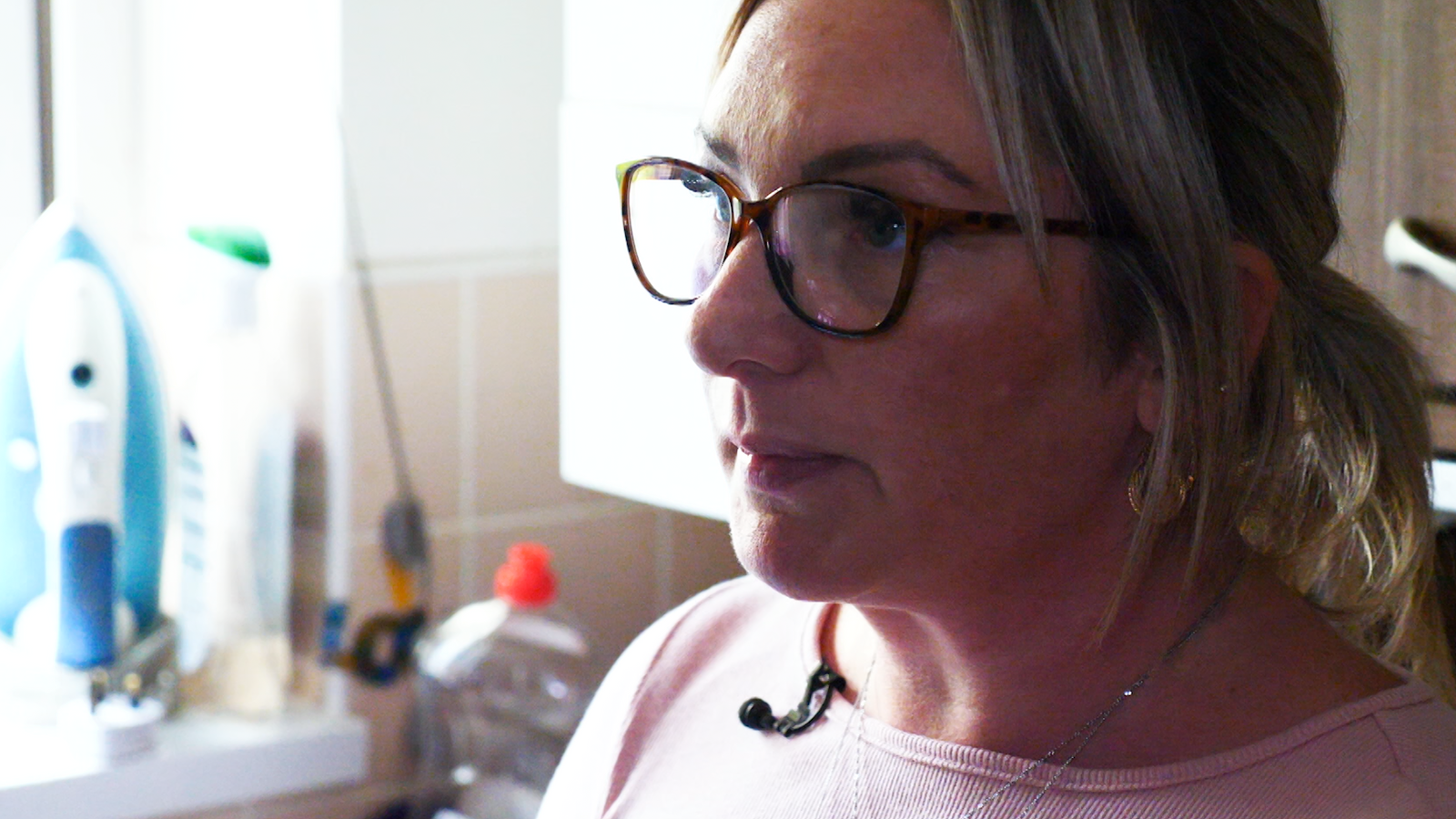From fishermen to pensioners, food clubs to families – Sky News brings you a series of reports this week from the maritime city of Plymouth as the cost of living continues to rise.
In the first of three reports, we investigate how increasing bills are impacting some of the 262,000 people that call Plymouth home.
“How often is money on your mind?” I ask a full-time working mum of three, Lara Thomas.
She replies, instantly: “All the time. I worry about money morning, noon and night.”
Ms Thomas and her children live in a flat in one of poorest parts of Plymouth, Devonport.
In fact, some parts of the city are among the most deprived areas in the whole of England.
“Every week I’m £80 in the red.
Cost of living: Music fans being priced out of seeing acts due to high ticket prices
Shell says windfall tax ‘creates uncertainty’ about North Sea oil and gas investment
Cost of living: Rishi Sunak’s support package lowers risk of recession, economists say
“Then I’ll get paid Wednesday and I thank god I get paid every Wednesday. But then by the Thursday or Friday with bills coming out – and I’ve got to buy food – I’m very lucky to have any of my wages left,” she adds.
Ms Thomas’s electricity and gas bill has gone up from £71 to £224 a month – which has led her to make a drastic decision.
“I’ll be honest with you – I’ve cancelled the direct debit and it frightens me that they’re going to send me a letter saying you’re going to have to pay it.
“I shouldn’t have done it. But if I haven’t got the money in the bank, I’m in the red, it’s just a constant…you’re constantly worrying.”
Feeling ‘lousy’ as a parent
She isn’t alone.
Around the corner, the Devonport Live community cafe is a hub for all those who live on the estate.
“I think with the cost of energy and prices going up people need us,” says manager Sarah Brown.
“We’re somewhere they can come in, have a cup of tea, something to eat at a low cost for the community. It’s more than just a community hub – it’s a way of living.”
Rosie Mitchell is with her son and six other women in the cafe’s craft club, which runs every Thursday.
“We budget a lot – well, we try to. Bread. You shop around for things. You can’t go to one supermarket for everything, you have to go to about three or four different ones.
“I feel a bit lousy, to be honest. As a parent, you want to do everything you can to provide for your children.
“But it’s becoming more and more difficult to do what they want and even more difficult to do what they need sometimes – and that’s hard to take as a parent.”
Weekly wages in Plymouth are below the national average – but it’s not just those working being hit.
Plymouth’s pensioners are finding that this isn’t the retirement they’d hoped for.
We join friends David Sellick and David Perkins for lunch in a harbourside fish and chip shop.
Both men have lived in Plymouth all their lives.
‘It’s getting to be a struggle’
They say the money they get from the state – isn’t keeping up with the cost of living.
“Gas and electric, I’m paying £150 a month – I only get just over £600 a month. That’s a third of it gone, just like that, then you’ve got food, other bills, water bills, it’s getting to be a struggle – it’s getting bad,” says Mr Sellick.
“I used to go out driving – going to the moors and the beach, I can’t afford that no more, it’s gone. I just use the car for convenience now to go down to the shop and get food. We’ve had two years of lockdown and it’s been sheer hell and it just feels like it’s going back the same way,” he adds.
Read more:
Rishi Sunak’s support package lowers risk of recession, economists say
As the cost of living soars, here are seven apps which may help you save money
Mr Perkins, who is disabled, says the increasing cost of all his bills is hitting him hard.
“It’s frightening me as a person. I’m very lucky, I’ve got a family that’ll back me up – but personally, I find it hard, very hard to understand why this is supposed to be Great Britain. Why are they putting us in a position that we are in,” he says.
Please use Chrome browser for a more accessible video player
The latest round of government assistance will help the likes of Mr Perkins – and Ms Thomas. But no one knows whether it’ll be enough this winter.
Back in her flat, the lights are off.
“I don’t put my lights on now – I go around in the dark.”
As she makes toast for her daughter, she tells me there just isn’t money left for treats – like going down to the harbour for waffles and ice cream: “It’s, ‘Oh mum you’re always saying no lately – you always used to be a fun mum and say yes, but you say no all the time now’. And it makes me feel guilty.
“It’s just horrible, I feel like I’m failing as a mum to be fair… I could cry, it’s just horrible.”






















